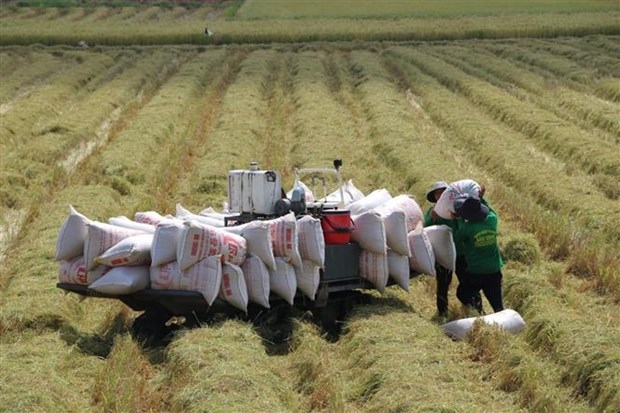Market diversification crucial for rice sector: Experts
Although Vietnamese rice has been exported to 150 countries and territories, markets for the product are mainly Asian countries and thus need to be diversified, according to experts.

Currently, the Asian region has been the largest market of Vietnamese rice, consuming over 60% of the country's total exported volume. It is followed by Africa with 22%, America 8%, Europe 5%, and other regions 5%.
In the first six months of this year, Vietnam exported 4.27 million tonnes of rice for US$2.3 billion, up 22.2% in volume and 34.7% in value over the same period last year. Those are the highest growth rates of the rice sector in the recent 10 years.
This year, rice export volume is forecast to stand at a similar volume as last year when 7.35 million tonnes of rice was shipped abroad.
In a recent report, the US Department of Agriculture also predicted that Vietnam's rice export will exceed 7 million tonnes this year, mostly due to rising demands in Asian markets.
In this scenario, Vietnam will rank third in the world in rice exports after India and Thailand.
Deputy Director of the Department of Asian-African Markets under the Ministry of Industry and Trade (MoIT) To Ngoc Son said that high demands from traditional markets such as the Philippines, China, Indonesia and African countries are creating opportunities for Vietnam to increase exports.
Particularly, Indonesia and Africa have announced plans to import a large amount of rice this year to ensure national food reserves.
Indonesia said it needs 2.4 million tonnes, while Africa plans to import about 17.7 million tonnes.
The MoIT underlined that from now to the end of this year, Vietnam should continue to seek new rice markets, while optimising traditional markets of China and the Philippines.
Vu Ba Phu, director of the Trade Promotion Agency said that the agency will continue to connect domestic firms and their foreign importers through various forms, while making full use of free trade agreements, and foster connections between domestic exporters and Vietnam Trade Offices abroad.
He said that the MoIT is building a project to build and promote the trademark of Vietnamese rice. He advised local firms to strengthen their linkage and cooperation with farmers to form a closed production chain.
In order to support businesses in expanding markets, the MoIT has coordinated with the Ministry of Agriculture and Rural Development to strengthen trade promotion in new markets such as Africa, the Middle-East, Western and Southern Asian countries, and Turkey.
Although the rice demands in these markets are not higher than traditional ones, they are promising markets for high-quality rice types, which can help Vietnam increase rice export value, according to the MoIT.

